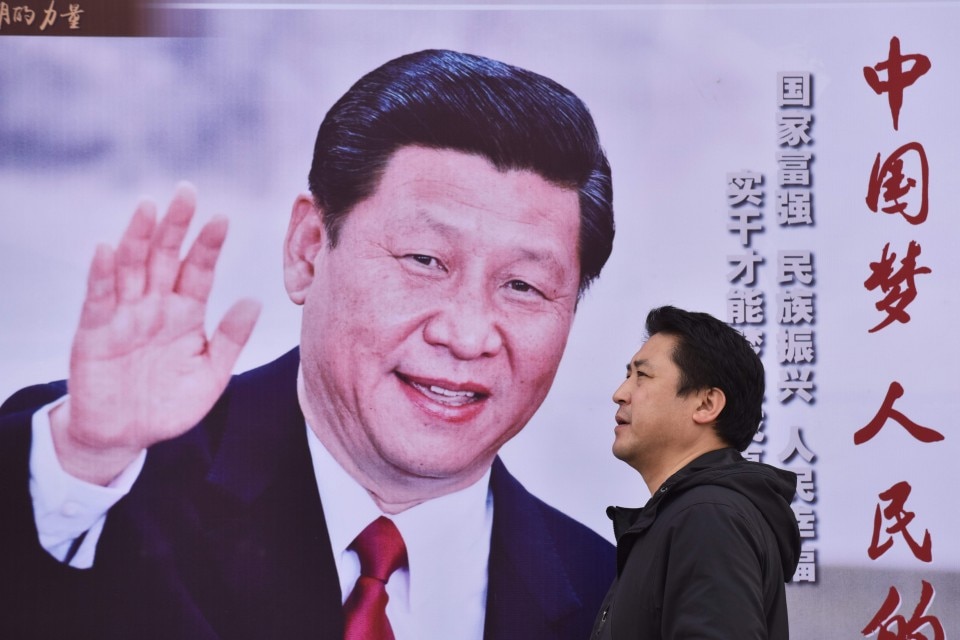Yu Jie is head of China Foresight at LSE IDEAS, the foreign policy think tank of the London School of Economics.
LONDON — In the mid-1960s, Mao Zedong told his fellow leaders of the Chinese Communist Party, “Someone once said: ‘Only an emperor would believe there were no parties outside the party, and it would be exceedingly strange for there to be no factions inside the party.’ Thus it is for our Communist Party.” Mao’s words seem apt during the 19th National Congress of the Communist Party of China as the country moves into what President Xi Jinping called a “new era.”
When the congress opened on Oct. 18, China pundits attempted to solve three riddles: who’s in and who’s out of the prestigious Politburo Standing Committee; whether “Xi Jinping Thought” — Xi’s eponymous political principles — will formally enter the pantheon of the party’s guiding ideology, an honor so far only given to Karl Marx, Vladimir Lenin, Mao Zedong and Deng Xiaoping; and who will dictate the contents of the congress’s political report.
The party congress, held every five years, is the most important event in China’s political calendar, equivalent to the moment white smoke rises from the Vatican announcing a new pontiff has been chosen. The party congress chooses the leaders of the world’s most populous country and, according to some measures, the most powerful economy.
One thing is now clear: Xi Jinping has cemented his power as general secretary, with ambitious goals to ensure China becomes an even greater global power. His three-and-a-half-hour speech focused on the Chinese Communist Party’s political continuity. That continuity derives from both the official and unspoken consensus among generations of party members all the way back to its establishment in 1921; Shakespeare’s quote “what’s past is prologue” applies to the party in 2017.
The riddle of personnel reshuffles will conclude this week. But while sensational headlines about factional politics please the crowds, the party tends to value continuity and procedure over change. Xi has so far carefully observed Deng Xiaoping’s landmark reforms in the 1980s on how senior cadres of the party are evaluated and how the baton is passed to the next generation’s leaders. After the decade-long trauma of the Cultural Revolution, the party and Xi’s family learned the hard lesson that collective leadership helps preserve the party’s longevity. In a party run by broad consensus, returning to one single supreme leader is resisted. Xi cannot afford to alienate other leaders, nor can he afford to run the country alone without potential scapegoats.
But after nearly 40 years of economic reform at home and a bold opening to the global economy during the 1990s, the world’s largest ruling party faces a new set of challenges and is asking itself where it might be heading. A close examination of Xi’s report suggests that the current party congress has focused on “principal contradiction,” a concept in communist dogma that defines the most pressing issue that needs to be addressed. The term suggests the party knows it needs to run a successful and sustainable economy because the conventional, highly polluting, investment-driven model has not only run out of steam, but has also created huge income disparities and a lack of social mobility.
Unlike the Soviets, Chinese leaders have repeatedly demonstrated an impressive capability to surmount existential challenges. But rarely have those challenges looked greater than they do for the coming decade. Domestically, continuous economic growth has produced vested interest groups that refuse to give up their power and authority which — together with extreme wealth inequality and severe environmental damage — could challenge the very survival of the party leadership. If the party defends a status quo that is manifestly unfair in its distribution of wealth and opportunity, trust from ordinary people will collapse. Ordinary Chinese yearn for prosperity and security. The party must look after those who haven’t prospered from Deng’s reforms.
On the foreign affairs front, Deng’s approach — to “keep a low profile” and “hide capability” — is being replaced by Xi’s much more proactive approach, which seeks to promote China’s core interests more forcefully while asserting its “rightful” place in the global order. Whether China’s bureaucracy and government are yet fully equipped with the skills to meet the new challenges remains to be seen.
Meanwhile, a dangerous mixture of China’s historical humiliation and its staggering economic success has unfortunately bred a strong sense of complacency on one level and an equally powerful current of hubris on another. This could turn out to be lethal inside China as well as detrimental to its neighbors and distant great powers.
Xi clearly knows that he is facing a much higher level of risk in both domestic politics and foreign affairs than either of his two predecessors. Delaying much-discussed and expected reform is not something he can afford. It is essential for Xi to prevent a perception of failure from becoming widespread among the Chinese population.
In his next term, Xi must strike a fine balance that can satisfy both elites and the general public. The 19th Party Congress marks a beginning of China’s quest for global preeminence, not a victorious conclusion for Xi and his leadership. One can only hope that going forward, his policies will be based on an innovative reading of the past and a belief that shared prosperity is not only essential for China’s future developments but, more importantly, is the only means to hold together the party’s legitimacy and ensure its survival.
This was produced by The WorldPost, a partnership of the Berggruen Institute and The Washington Post.





